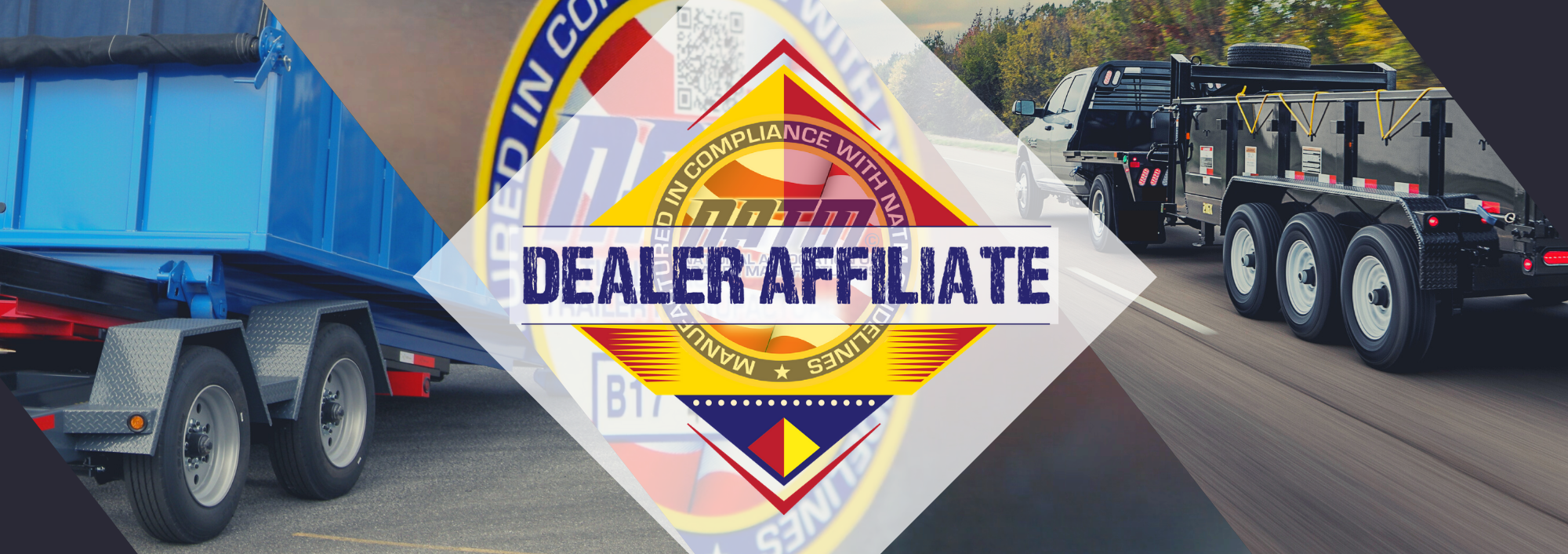Dealer Corner: Explaining Gross Vehicle Weight Ratings to Customers
 Dealers should educate their customers on the importance of understanding a trailer’s gross vehicle weight rating (GVWR) and tow vehicle towing capacity. All too often, customers are not familiar with what trailer GVWR or cargo capacity means. Nor are they familiar with what this will require from their tow vehicle in terms of its towing capacity. This lack of information can lead to dissatisfaction if customers fail to complete necessary research before the purchase of the trailer, or if the trailer dealer personnel fails to ask the correct questions to ensure their customer is selecting a trailer that meets their needs and legal requirements.
Dealers should educate their customers on the importance of understanding a trailer’s gross vehicle weight rating (GVWR) and tow vehicle towing capacity. All too often, customers are not familiar with what trailer GVWR or cargo capacity means. Nor are they familiar with what this will require from their tow vehicle in terms of its towing capacity. This lack of information can lead to dissatisfaction if customers fail to complete necessary research before the purchase of the trailer, or if the trailer dealer personnel fails to ask the correct questions to ensure their customer is selecting a trailer that meets their needs and legal requirements.
First, the tow vehicle must be analyzed. What is the model of the customer’s pickup truck, SUV, minivan, or car? All vehicles capable of towing have owner’s manuals with maximum rated towing capacities. What often gets overlooked is maximum in this context, which truly means maximum. For example, if a customer has a tow vehicle with a towing maximum capacity of 7,000 lbs., they may not want a 7,000 lbs. GVWR trailer. The customer needs to take into serious consideration the fact that they will be at maximum capacity. Even without accidentally overloading the trailer, the tow vehicle will be working at its maximum capacity and not handle as well. As a result, they could find that their tow vehicle does not have enough power to merge with traffic on interstate on-ramps, to pass other vehicles, or to climb long hills and mountains. Trailer customers end up dissatisfied if they have purchased too much trailer for their tow vehicle. Unfortunately, simply purchasing a larger tow vehicle with a larger towing capacity is not an affordable solution to this problem and preventative measures by the dealer are the best route to customer satisfaction.
Dealers should ask the customer what their intended tow vehicle will be and if they are committed to that tow vehicle for the next few months, the next few years, or just the next few minutes. The customer could be vehicle shopping at the same time they are trailer shopping or may be willing to upgrade in the near future. From there, the trailer dealer can assist the customer in choosing a trailer that their current tow vehicle can handle. Or, in the event that the customer is in the market for a new tow vehicle, dealers can advise customers to purchase a certain category of tow vehicle that meets or exceeds a certain towing capacity threshold. It is a crucial conversation to have at the point of sale as many customers think their tow vehicle will perform adequately towing a certain model of trailer, only to find out too late that they should have either purchased a smaller trailer or upgraded their tow vehicle to handle the larger trailer model.
After the tow vehicle conversation, the topic can turn more specifically to the trailer. Dealers should make sure customers understand that the combination of the shipping weight of the trailer plus the trailer's cargo capacity should never exceed the trailer’s GVWR listed on its VIN. The shipping weight information can be found on the manufacturer’s certificate of origin (MCO), while the cargo capacity is often listed on the trailer’s tire placard.
For example, if a trailer’s GVWR is 7,000 lbs., the customer's tow vehicle should have a towing capacity that is 7,000 lbs. or preferably more. It is also crucial that the customer not overload the trailer. If the trailer itself weighs 2,700 lbs., the customer should never put more than 4,300 lbs. of cargo in it, because 2,700 lbs. plus 4,300 lbs. equals 7,000 lbs. GVWR, which the trailer should never exceed.
Another critical dealer/customer conversation is what cargo the customer intends to tow. If the customer plans to haul a rock crawler SUV and camping gear that adds up to 5,500 lbs. in the example above, they cannot safely do that with the same trailer. The calculation for this example is the combination of the trailer weight of 2,700 lbs. plus the cargo of 5,500 lbs., which equals 8,200 lbs. This means the trailers’ GVWR would need to be 8,200. But, because the GVWR of this trailer is 7,000 lbs., this customer has overloaded their trailer by 1,200 lbs.
If the customer tells the dealer in this example that they intend to haul an estimated 5,500 lbs. of cargo, the dealer needs to explain to the customer that they should purchase a larger trailer with a higher cargo capacity. If the customer says their tow vehicle cannot haul a larger trailer, then the trailer dealer needs to explain to the customer they need both a larger tow vehicle with a higher towing capacity and a larger trailer with a higher cargo capacity. If this is not possible, the customer needs to find a way to haul significantly less cargo. The customer might be disappointed upon learning this, but later they will be appreciative of the dealer’s honesty, which leads to long term customer loyalty. The NATM Guidelines contain a section on trailer GVWRs. For more information, contact NATM’s Technical Director Colin Holthaus at Colin.Holthaus@natm.com or (785) 272-4433.

